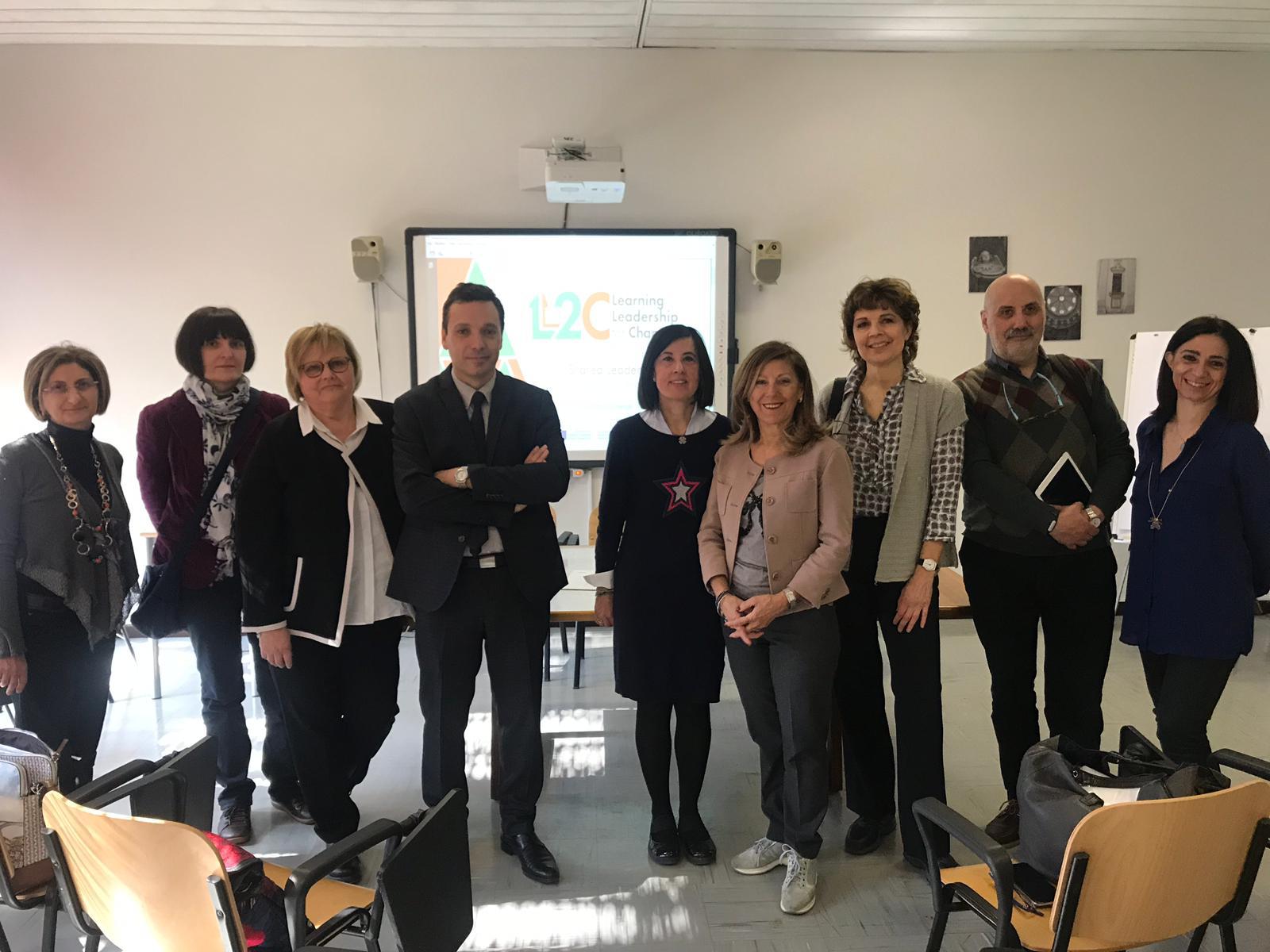indireinforma
The European project Learning Leadership for change: from the perspective of one of the schools involved

Learning Leadership for Change (L2C) is a three-year European project (2018-2020) aimed to promote shared leadership at school and strengthen an effective network for competences development (self-evaluation, training and best practices sharing) in three key areas: STEM, innovative use of ICT for teaching, and digital citizenship. Indire, as project partner, started the experimentation in three schools in Viterbo, Figline Valdarno and Milan.
The representatives of the three schools met at the end of March on the occasion of the visit to the I.T.S.T. “Gentileschi“. Head teachers and teachers saw some of the innovative spaces of the school such as the Gradoni room used for debate or the library with the digital catalogue connected with the network Milan’s school libraries and took part in an interactive lesson in the lab-room of chemist and science. The day continued with a focus activity led by the headmaster, Lorenzo Alviggi and his staff, during which shared leadership and the experimentations undergoing at the “Gentileschi” were discussed, including: management of the project work schemes for school students that include teachers, tutors, students, referents of companies and parents; language and computer certifications, the coordination of activities to sustain inclusion or the implementation of the pathway “attitudes” where teachers expert in aptitude guidance and representatives of the Franceschini Foundation, active in the field of research on socio-political themes, collaborate.
The I.T.S.T. “Gentileschi” is carrying out with success the project L2C and the implementation of shared leadership in the three key areas. As far as digital citizenship is concerned, it organised an extracurricular path for selected groups of students on information literacy who shared in the class the competences acquired triggering off teachers’ curiosity and interest.
The headmaster and teacher board’s proposal of the organisation of a training course on ICT teachers ’competences stemmed from this idea, providing teachers with an opportunity of professional development. As regarding STEM subjects, the school availed itself of the advice of two near-graduates of the MIT of Boston who had been guests of the school for a month and tested learning units in co-teaching, collaborating in close contact with the teachers. The head teacher’s staff, teaching staff and students worked together also for the spreading and use of Soclo, a social platform for sharing resources, lessons, tasks and online collaboration. The idea of governance that L2C brings forward demonstrated that this way of working is functional to the development of positive horizontal relationships, strengthening the sense of belonging to the school community and had a positive impact on empowerment because the actors involved in the decision-making processes acquire self-awareness and control over their own choices, at a personal level and in relation to social and political life.
To know more:

